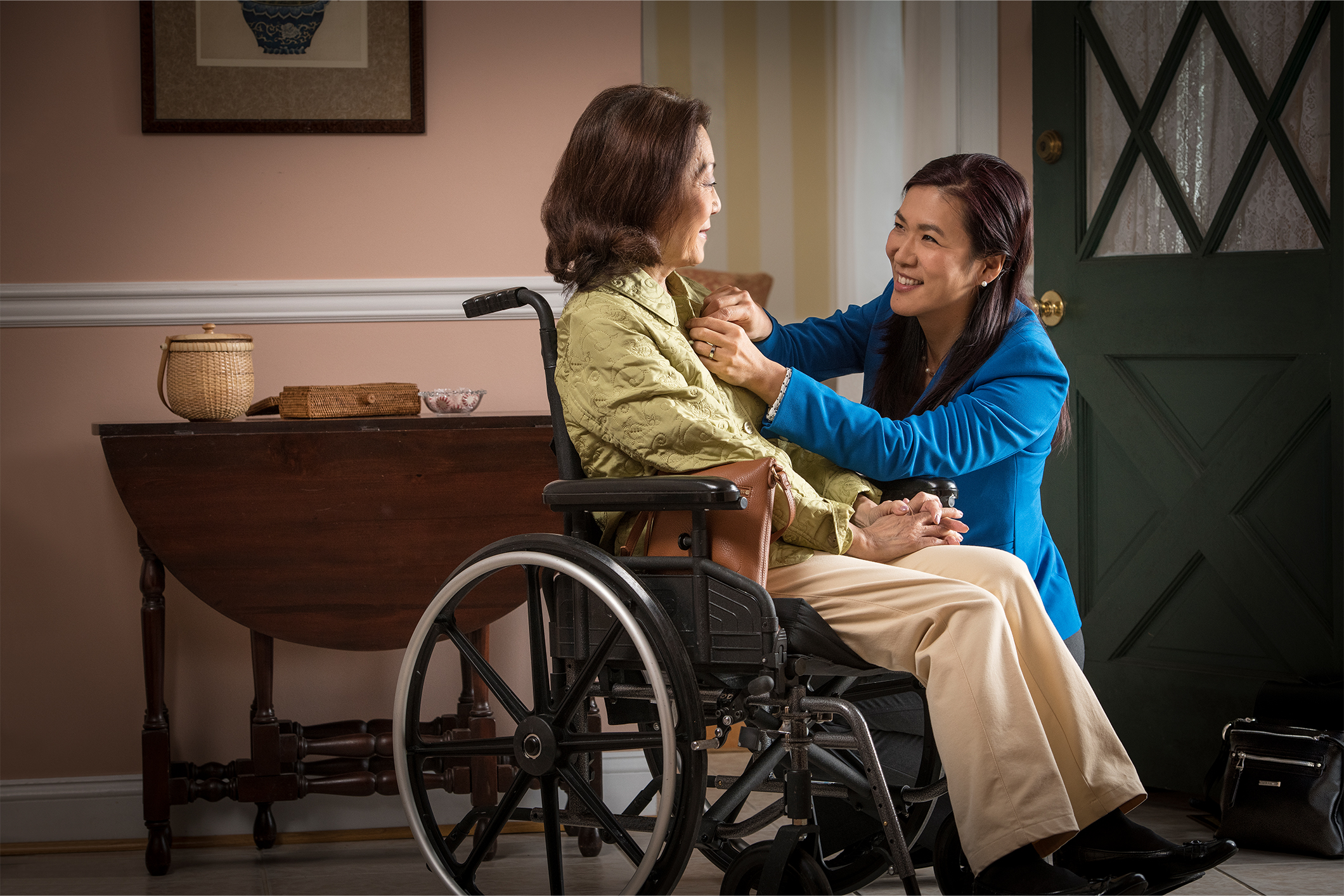AARP Hearing Center

Caring for a parent, spouse, or other loved one can be a 24/7 job that is emotionally, physically, and financially difficult. That’s why AARP works tirelessly to support family caregivers—striving to make your big responsibilities a little bit easier.
Nebraska’s Caregiver Tax Credit
Support is finally on the way for Nebraska’s 179,000 family caregivers and the parents, spouses, and other loved ones they care for with a tax credit provided by the Caregiver Tax Credit Act.
The Caregiver Tax Credit Act passed during the 2024 Nebraska legislative session and will take effect on January 1, 2025. The tax credit will be available for the 2025 tax year. Nebraska is the second state in the nation to adopt an expansive tax credit for family caregivers.
About the Tax Credit:
The Caregiver Tax Credit Act provides a nonrefundable tax credit for out-of-pocket costs incurred by the unpaid family caregiver for a limited set of services. The expenses must be directly related to assisting the family caregiver in providing care to an eligible family member. The tax credit is capped at $2,000 per year for most participants. Individuals caring for veterans or those with a dementia-related diagnosis will receive up to a $3,000 tax credit. There are no age restrictions to qualify for the tax credit.
Eligibility Tool Questionnaire
Click here to answer six questions and find out if you may qualify*.
*Information and interactive forms are made available to you as self-help tools for your independent use and are not intended to provide official eligibility determinations for this tax credit. We cannot and do not guarantee their applicability or accuracy regarding your individual circumstances. All examples are hypothetical and are for illustrative purposes. We encourage you to seek personalized advice from qualified professionals regarding all personal finance issues. For an official eligibility determination, you must apply for the tax credit through the official application made available by the relevant government authority in your state.
Qualifications to Receive the Tax Credit:
- Eligible Nebraskans receiving care from a family caregiver must require assistance with at least two activities of daily living (ADLs), as outlined in the qualifications section. The ADLs must be certified by a licensed health care provider.
- Family caregivers—or those providing care and support for an eligible family member—must have a federally adjusted gross income of less than $50,000 (individual) or less than $100,000 if a married couple filing jointly to receive the tax credit. They must also personally incur uncompensated expenses directly related to the care of an eligible family member.
- Individuals must qualify as a dependent, spouse, parent, or other relation by blood or marriage to the family caregiver.
- Individuals must live in a private residential home—not an assisted living center, nursing facility, or residential care home.
How to Apply for the Tax Credit
Instructions
Family caregivers must apply for the tax credit with the Nebraska Department of Revenue (NDOR). If approved, NDOR will certify the tax credits to the family caregiver. NDOR will process applications in the order received based on the following annual limitations for the State fiscal year:
- July 1, 2025 to June 30, 2026: $1,500,000
- July 1, 2026 to June 30, 2027: $1,500,000
- State fiscal years after: $2,500,000
For the 2025 taxable year, NDOR began accepting applications in February 2025 for eligible expenditures made on or after January 1, 2025. You can apply for the tax credit on a rolling basis until limitations are reached. View the Nebraska Tax Credit Authorization Table.
Forms for Completion
The family caregiver is required to apply for the credit by submitting the Family Caregiver Tax Credit Application (Form 3165) and the Licensed Health Care Provider Certification for the Family Caregiver Tax Credit Application (Form 3165C) to the Nebraska Department of Revenue (NDOR) along with any required documentation, including documentation supporting the eligible expenditures.
Upload Documents for Department of Revenue
Click here to upload Form 3165, Form 3165C, and all required documentation directly to the Nebraska Department of Revenue.
View instructions on how to upload your form documents.
Have Questions or Need Assistance?
Nebraska Department of Revenue
Website | Call: 402-471-5729 | In-Person: 301 Centennial Mall South; Lincoln, NE 68509-4818
Part 1: Introduction
Part 2: Completing Form 3165
Part 3: Completing Form 3165C
Part 4: Submission Process
Part 5: Conclusion
Caregiving Resources
211 Caregiver Support Program from AARP and United Way
This program helps family caregivers get the resources and support they need through the 211 network, a free helpline providing the most comprehensive source of information about local resources and services in the country. Call 211 or visit 211.org to connect with a local 211 specialist (*any information you provide 211 will be governed by its privacy policy).
AARP Family Caregiver Resources for Nebraska
AARP developed this family caregiver guide with you, the caregiver, in mind and as a starting point to help you find the services and support you might need throughout your journey.
AARP Family Caregiving Site
AARP is here to help with information and resources on caregiver life balance, financial and legal issues, care at home, health and more.
AARP Nebraska on 10/11 News's "Seniors Everyday"
Episode 1 | Episode 2 | Episode 3
In this three-part series, AARP Nebraska shares helpful information about the Nebraska Caregiver Tax Credit, determining eligibility, saving receipts, and how to claim the tax credit.
AARP Trifold Brochure on Nebraska's Caregiver Tax Credit
Download our Nebraska's Caregiver Tax Credit trifold brochure for helpful information and answers to frequently asked questions.
Community Resource Finder
Easily access a comprehensive listing of dementia and aging-related resources such as care providers, programs, and services available in a specified area.
Quick Tips for Caregivers
Check out how to use simple household items to solve everyday challenges.
Sign Up to Become an AARP Activist
By signing up, you'll receive the AARP Advocate, a free monthly e-newsletter, email action alerts on issues you care about, and the latest news on Congress and the White House.































































